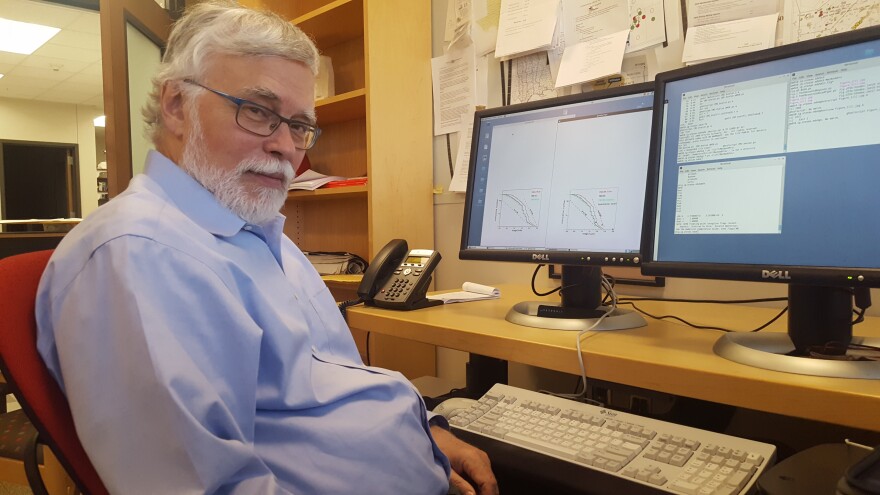The risk of damaging manmade earthquakes striking the Dallas-Fort Worth area is substantially lower than it was last year, according to a new earthquake hazard map released this week by the U.S. Geological Survey.

“We didn’t anticipate that there would be a reduction like that,” Mark Petersen, chief of the National Seismic Hazard Mapping Project, said in a conference call with reporters.
Why the lower risk? The USGS determines an area’s risk of manmade quakes by looking at quakes the previous year and projecting forward. Last year, there were no major North Texas earthquakes, so the risk is down.
Researchers say there are several reasons earthquakes have decreased in the region, including the downturn in oil and gas activity.
When the oil and gas boom went bust it meant less injection of wastewater underground, which is exactly what researchers say caused the quakes in the first place.
Industry may also have gotten smarter about how it disposes of wastewater.
“If you’re producing oil and gas, you don’t want trouble. You don’t want to produce earthquakes,” Cliff Frohlich, a seismologist at UT Austin, said.

Frohlich said the important thing to remember is that the USGS doesn’t take human or industry activity into account when assessing earthquake risk, so the quakes could re-emerge.
“For example, now they’re ramping up oil and gas production in the Permian Basin, and so we might know that there’s going to be lots of production and injection there. That’s not part of the model,” he said. “Until earthquakes happen there the model won’t predict that there’s going to be earthquakes there.”
Researchers say one way to guard against earthquakes coming back as drilling increases is by better regulating wastewater injection.
In Texas, some rules have changed to guard against manmade quakes, but state regulators continue to question the link between quakes and oil and gas activity. In Oklahoma, regulation of wastewater injection has been more robust.
"It’s unlikely that the injection volumes will increase in that part of Oklahoma even if the prices would favor more exploration and more produced water," Rob Williams with the USGS said.






